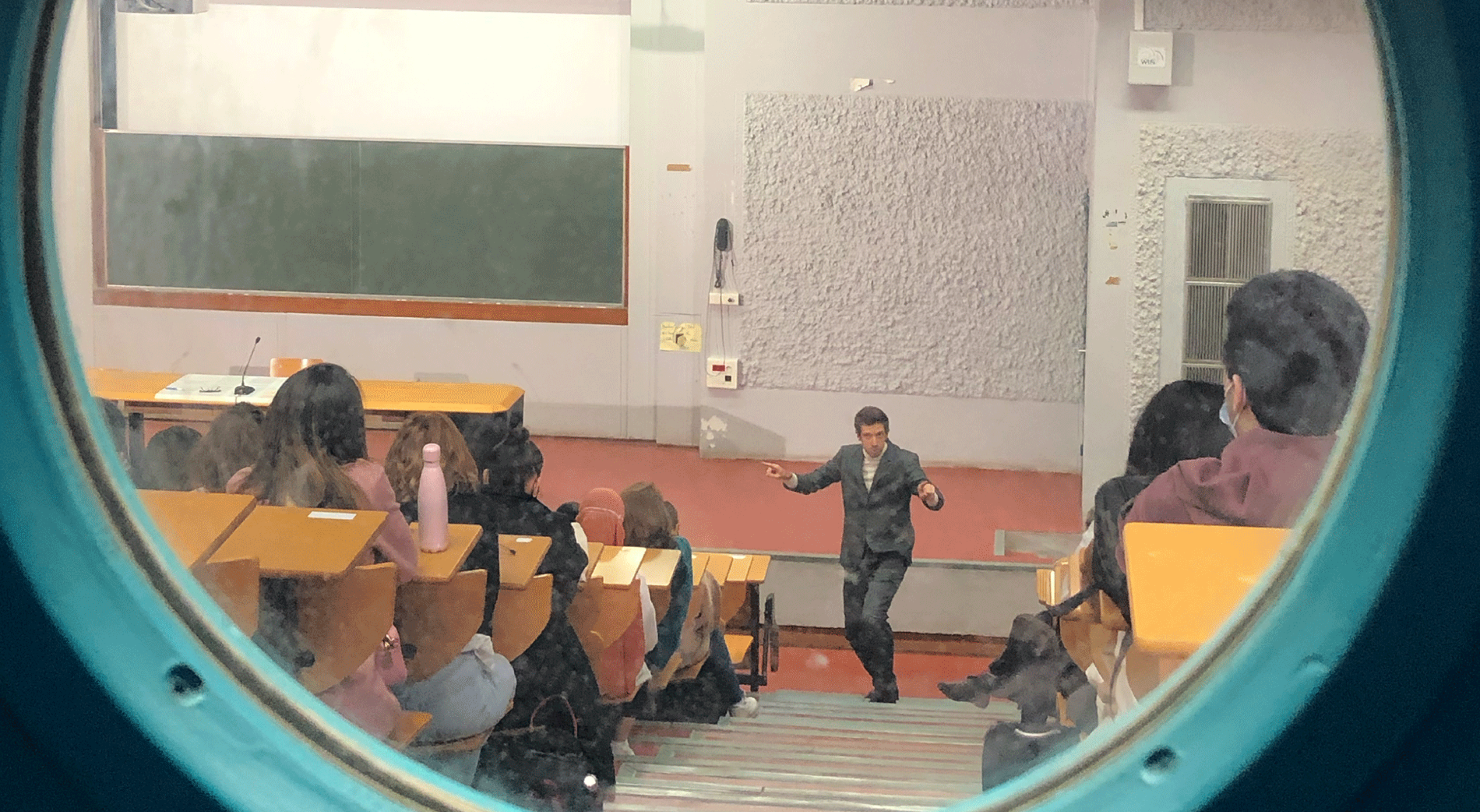Fanny de Chaillé
Désordre du discours
Sorbonne Nouvelle – Campus Nation
octoberoct 19
Conception, Fanny de Chaillé
From L’Ordre du discours, Michel Foucault (© Éditions Gallimard)
With Guillaume Bailliart
Sound, Manuel Coursin
Stage management, Manuel Coursin
Production-diffusion, Isabelle Ellul
Logistic and communication, Jeanne Dantin
Production Display
Coproduction Malraux scène nationale Chambéry Savoie ; Bonlieu scène nationale Annecy ; Théâtre Saint-Gervais (Genève) ; Théâtre Vidy-Lausanne ; Festival d’Automne à Paris
Fanny de Chaillé est artiste associée à Malraux scène nationale Chambéry Savoie, à Chaillot, théâtre national de la Danse, et au Théâtre Public de Montreuil-CDN. Ce spectacle est supported by the PEPS project as part of the European program of cross-border cooperation Interreg France-Suisse 2014-2020
With support from La Comédie de Clermont, scène nationale and of CND Centre national de la danse
Show created on march the 12 of 2019 at Malraux scène nationale Chambéry Savoie
La Fondation d’entreprise Hermès sponsors the tours organized by le Festival d’Automne at the universities.
On the 2nd December 1970, Michel Foucault gave his inaugural lecture at the Collège de France, the first lesson for which a rewriting subsists, entitled L’Ordre du discours. Fanny de Chaillé recreates the event and puts together a discursive performance destined for university amphitheatres. The effect of this re-enacting of Foucault’s words is to set his thoughts in motion once again.
“But what is dangerous about people talking, and the fact that their various discourses proliferate indefinitely? What is the actual danger?” From his chair in the academy, Michel Foucault formulated a discourse on discourse and put forward a hypothesis: all societies set up structures which control, select, and redistribute the production of discourse. Right from the outset, the text, written to be spoken out loud, questions what it is, from the moment the philosopher bears witness to his fear of the act of discourse. Driven by the desire to stage this text that she has often read, and by that of a return to the realms of the university amphitheatre, Fanny de Chaillé immerses the actor Guillaume Baillart in the fertile dialectic between language and its utterance. By seeking out the initial orality, which is by its very nature imaginary and disordered, she transposes the rhythmic Foucualdian prose into a precise gestual and vocal partition. The body becomes a support for the spoken word, the spoken word for language, and language for the thought, jubilant as it is to be set in motion. In the amphitheatre, new spaces for saying and listening thus appear before us. If looking back at The Order of Discourse is a necessity, then it follows that its train of thought needs brought back to life, so that it continues to speak to us.
In the same place
